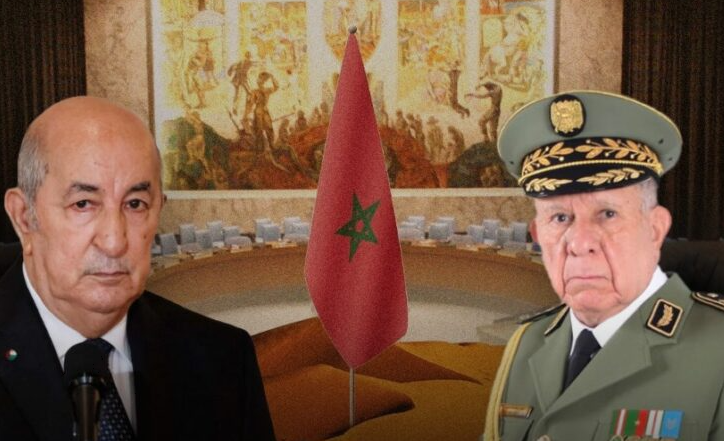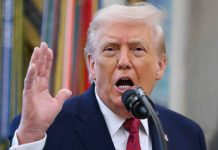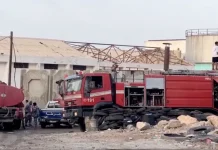- Over the years, Algeria has repeatedly ignored King Mohammed VI’s calls to engage in a serious dialogue to put an end to the decades-long conflict over Western Sahara.
As Moroccans took to the streets and social media to celebrate the latest UNSC resolution on Western Sahara, their attention turned to Algeria, sometimes in mockery, in what seemed a huge diplomatic defeat for the Polisario Front’s main sponsor.
In his speech following the UNSC resolution, King Mohammed VI once again wisely adopted a more conciliatory tone towards Algiers, reiterating his call to Algerian decision-makers to come to the negotiating table to reach a final solution to this thorny issue that has plagued the region for 50 years.
For Moroccans, Algiers bears a bigger share of the blame for the longevity of the conflict by embracing and harboring the Polisario Front, arming and providing diplomatic cover for the separatist movement for five decades.
Algiers continues to cling to outdated myths
What is even more puzzling to them is that the calls for a Moroccan Algerian reconciliation are solely coming from King Mohammed VI, while on the Algerian side, from President Abdelmadjid Tebboune, the Army Chief of Staff Said Chengriha, government officials, academics, journalists, and even ordinary people, the tone remains hostile. Meanwhile, oblivious to the obliteration of the myth it has pushed forth and fiercely promoted during all these years, the Algerian establishment is desperately clinging to parroting the same talking points over and over: “Algerian support for the Sahrawi cause is unwavering. No reconciliation with Morocco. This is an issue between Morocco and Sahrawis and we are not part of it. Algeria stands with just causes…etc”.
Algiers’s obsession with Morocco and the Sahara dossier can be understood in light of what some Algerian opposition figures characterize as the Algerian regime’s tendency to make the issue of Western Sahara a “’sacred cause.’’ Yet what makes this manufactured separatist cause sacred is subject to debate and speculation.
Different readings of Algeria’s obsession with undermining Morocco
Some believe that the Morocco-Algeria 1963 border dispute and subsequent armed conflict, known as the Sand War, is the reason behind Algeria’s full-throated engagement in the Western Sahara issue, with a view to constantly diverting and frustrating Morocco while preventing it from realizing the full potential of its continental depth.
The kingdom had given up its legitimate claims to the Eastern Sahara region (including territories such as as Bechar, Tindouf and others) in the hope that, after gaining independence from France, its Algerian brothers would keep their promise of rewarding both Morocco’s brotherly attitude on the Eastern Sahara file and its strategic and logical support Algerian independence by recognizing the kingdom’s sovereignty over its southern provinces.
Yet, in their nationalistic eagerness to become the sole regional power by keeping all the vast territory they had inherited from the French colonizer, while reneging on their promise to support Morocco’s quest to reclaim its southern provinces it had lost to Spanish colonialism, the leaders of independent Algeria radically changed their once brotherly discourse and attitude toward Rabat. In this context, the 1963 border friction that came to be known as the Sand War created an atmosphere of mutual mistrust. Algeria emerged from its defeat in this short-lived confrontation even more hostile, bitter, and determined to settle scores with Morocco. As a result, it saw in the emergence of the Polisario Front in the 1970s a golden opportunity to undermine Morocco’s claim to its southern provinces and keep the kingdom’s regional ambitions in check. Others believe that Algeria’s agenda is not motivated by fear of Morocco. Rather than being on the defensive, they have argued, Algeria has an aggressive ambition to expand its influence thanks to a puppet state in Western Sahara. This would guarantee it access to the Atlantic, cutting off Morocco from any depth to the south, and make the kingdom completely surrounded by two hostile countries from all sides.
The proponents of this view point to Algier’s ambition to be the sole and undisputed regional leader in the Maghreb, an ambition to which Morocco poses a threat to due to its illustrious history as the cradle of empires and kingdoms that ruled over large territories in North and Sub-Saharan Africa over the past centuries, such as the Almoravids, Al Moahads, and the Saadis. So, a strong and unified Morocco is a nightmare for Algeria’s regional projections. Still others maintain that Algeria does not really want to see Western Sahara emerge as a fully independent state. This view is backed by previous statements from Khaled Nezzar, former Algerian minister of defense and of the countries’ key military generals in the 1980’s and 1990’s, who made that claim several times. As such, continued support for the Polisario is merely a card that Algiers uses against Rabat to settle scores over tensions or bilateral disagreements — past and present.
It also serves as a means to distract Algeria’s civil society and ordinary Algerians from seriously challenging the regime over its failures to address the country’s most pressing socio-economic issues or loosen the army’s tight grip on politics. By constantly pointing to the “existential enemy” next door “who oppresses Sahrawis, nourishes expansionist ambitions, and who is all-time plotting against Algeria in connivance with Israel,” the Algerian establishment is thus eager to use its “existential” enmity with Morocco as a scapegoat and a diversionary tool.
While these readings of Algeria’s true motives in Western Sahara are slightly divergent, when put together, they give us the big picture of the Algerian role in the conflict.
That is why King Mohammed VI has repeatedly called on Algeria to engage in a serious dialogue to put an end to the conflict. Algiers is not responsible for the emergence of the Polisario Front, which was created by young Sahrawis, many of whom were born and educated in Morocco and who were not calling for an independent Sahrawi state at the beginning, but Algeria is guilty of obstructing a resolution to the conflict for the past four decades.
Sahrawi and Palestinian causes are tactical cards for Algeria’s strategic gameplay
Algerians like to maintain that the reason behind their massive support for the Polisario Front, with billions of dollars spent to promote its cause both globally and on the African continent, is benign and motivated by a deeply rooted belief in just causes and the right to self-determination. But this is just laughable.
Countries are primarily motivated by their self-interest, and Algeria is no different. While there might be a kernel of truth in Algeria’s claim that supporting the Palestinian cause, and to a lesser degree the ambitions of the Polisario Front, is a matter of principle, the reality is that Algeria cares more about itself and its interests than it does care about Palestine or the Polisario.
And although there is an undeniable pro-Palestinian and anti-Israeli sentiment among the Algerian public, the government and Algerian media, on many occasions, use the Palestinian issue to try to project influence abroad, often without success, garner domestic support, and most importantly, perpetuate hostility towards Morocco because of its normalization with Israel. Yet in doing so, Algiers shows its hypocrisy on several levels.
For one, though not having official ties with the Jewish state, it’s not like Algeria never had any interaction with Israel. The mutual hugs and exchanges of niceties between former Algerian president Abdelaziz Bouteflika and former Israeli PM Ehud Barak during King Hassan II funeral in 1999 is just one example.
John Bolton, who is one of the Polisario’s most prominent proponents in Washington, is often hailed as a hero in Algerian media for his anti-Moroccan stances, is at the same time a staunch Zionist.
And so, while the Algerian media constantly attack Morocco over its normalization with Israel, they have no qualms about celebrating one of Israel’s staunchest allies in the U.S., Bolton is hailed almost as a hero in Algeria for supporting the Polisario and holding anti-Morocco stances.
Also, while Algerians demand that Morocco cut ties with Israel as a precondition for any potential reconciliation, the issue never pops up when Algeria interacts with other Arab nations, such as Egypt and Jordan, which have long-standing official ties with Tel Aviv.
A large segment of Moroccans remains opposed to normalization with Israel, so they don’t need lectures on that regard from abroad. And when that normalization ceases to exist, it will be because of internal pressure not outside virtue-signaling.
What Algeria seems to really fear is any political gains Morocco might generate from such a normalization, especially when it comes to Western Sahara and Algeria’s interests in the issue.
Morocco’s momentum is now irreversible
In addressing Algerian officials, King Mohammed VI seems to have those interests in mind, offering a dialogue through which Algiers can express what it really wants, and to what extent Rabat can accommodate it — all of this in a way that can put an end to the lingering Sahara conflict, preserve the dignity of the Sahrawis in the Tindouf camps, and spare the region more years of division and tension.
Yet, the Algerian government persists in lying to its people and the world by continuing to claim it is not part of the conflict, and that its motives are benign.
But, as demonstrated by the latest UN resolution, we are long past the point where Algerian obfuscation and rhetorical theatrics can divert Morocco from capitalizing on its hard-fought diplomatic gains in the Sahara dossier. Whether Algiers comes to terms with this reality or not, Morocco will continue to assert its de-facto sovereignty on Western Sahara, with the aim to make the region a key part in Morocco’s development in the future.
BY: The Times Union








